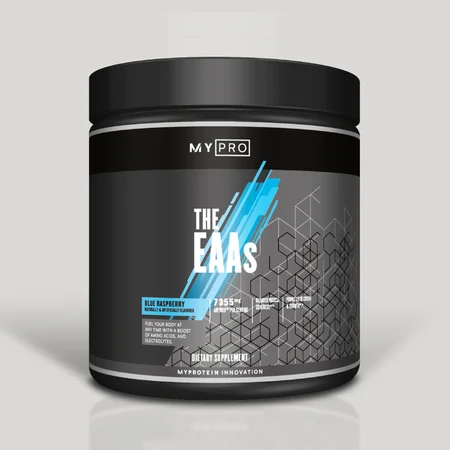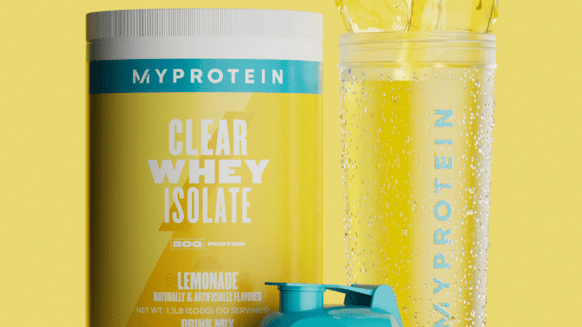
With so many protein products available — whey, casein, EAAs, BCAAs — you can be forgiven for getting a little mixed up. So let’s make it make sense.
Myprotein product developer and nutrition BSc Katie Brown is back for another breakdown of the nutrition facts, so you can stay well informed and make the right choices for you. Today, we’re delving into EAAs. What are they for and are they better than whey protein?
What are EAAs?
Yet another acronym, eh? Fortunately, this one’s pretty simple. EAA stands for essential amino acids, the building blocks of protein. Simple.
But here’s where we kick it up a level.
Amino acids are chains of compounds made from carbon, nitrogen, hydrogen and oxygen. These smaller chains join to form a larger protein molecule.
To digest the protein we eat, our bodies have to break the protein down into individual amino acids. These can then be used to support muscle during training and help in creating new muscle mass. That's what we like to hear.
Overall, there are nine essential amino acids, also sometimes known as “indispensable amino acids”. They’re known as “essential” or “indispensable” because our bodies can’t make them, so we must get them from food. Poultry, meat and eggs are full of essential amino acids and can help you to reach your daily macro goals.
But these aren’t viable protein sources for everyone — vegans can struggle to get all of their amino acids on a plant-based diet, so that’s where our vegan-friendly EAAs come in handy.
And EAA supplements aren’t just for vegans. With the price of everything seemingly increasing, upping your poultry, meat and eggs might not be a road you’re willing to go down. And we’re with you on that. EAAs are a cost-effective and time-efficient way to get the nutrients you need, especially if you have a high-protein goal to meet.
Why choose Impact EAAs?
Not only does Impact EAAs contain all the essential amino acids, it also contains an optimal 4:1:1 ratio of branch chain amino acids (BCAAs). These are leucine, isoleucine and valine.
BCAAs have been shown to induce fat loss, promote muscle growth and maintain overall exercise performance. That’s something we can get behind.
- Leucine: the most important BCAA for protein creation and muscle growth. This is why there’s a higher ratio of it.
- Isoleucine: this BCAA boosts energy and recovery.
- Valine: repairs and maintains healthy muscles to keep you fighting fit.
What’s the difference between EAAs and Impact Whey Protein?
Both of these bestsellers have the same amino acid profile, so what’s the difference?
EAAs contain an added quantity of the BCAAs in the optimal ratios for muscle building. Music to our ears. Other than that, EAAs contain zero calories and zero sugar, unlike Impact Whey Protein. This is perfect for if you’re working towards a weight-loss goal or following a restricted-calorie diet.
EEAs are spot on for helping you to get the amino acids you need without needing to worry about the extra calories. And better yet, if you prefer a juicier shake it mixes to be more like juice than milky protein.
Which should you choose?
If you’re as indecisive as me, this might not be what you want to hear, but both are a great choice if your priority is muscle building. Impact EAAs might be a better choice if you’re reducing your calorie intake and prefer a lighter, juicier shake. EAAs are also more tailored towards building muscle due to the optimal 4:1:1 ratio of BCAAs.
Take Home Message
Hopefully you’re a bit clearer on the difference between EAAs and Impact Whey Protein than you were before. I know I am. But now it’s down to you. The choice is yours, so what will it be?
READ MORE HERE:

“Why Do I Eat When I’m Bored?” | Nutritionist Answers This Age-Old Question
And how to only eat when you're *really* hungry....

Truth About Creatine 'Helping' Weight Loss | Nutritionist Reveals All
Yet more creatine myth-busting....

Bulking Diet Explained By Nutritionist
Richie is back to explain bulking diets....









